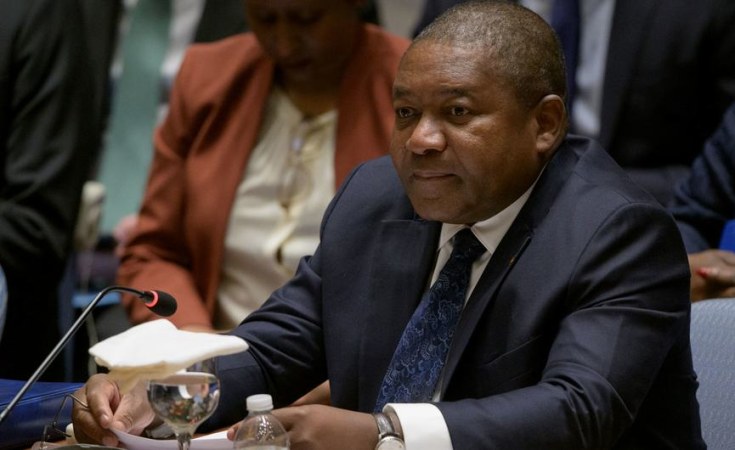While Nyusi Received Plaudits in New York for Peacebuilding, Back Home the Process is at Risk
Building trust was a decisive factor in the success of peace negotiations with Renamo, and that trust must be nurtured, President Nyusi told the United Nations Peacebuilding Commission in New York on 29 March.
There is a certain irony - probably lost on ambassadors present at the meeting in New York - that those comments were being made on the same day that Renamo was protesting loudly in parliament at the ruling Frelimo party’s manoeuvres to go back on one of the commitments made in the 2019 Maputo Accord.
One of the concessions won by Renamo in that peace agreement was for further decentralisation of power: first for the election of provincial governors, which happened in 2019, and then for the election of district administrators, which was to start in 2024. But Frelimo yesterday laid the groundwork for that provision to be removed from the Mozambican constitution - despite opposition from Renamo.
Chaloka Beyani, one of the negotiators of the peace deal who worked particularly on the decentralisation issue, told the UN discussion on 29 March that decentralisation was key to building peace. Asked by the chair of the meeting for three key lessons learned from the process, one thing he highlighted was the importance of writing these provisions into the constitution, rather than simply leaving them as a treaty.
But as we are now seeing, even putting things into the constitution does not mean they are set in stone. With its super-majority in parliament, of more than two-thirds of the seats, it can change the constitution without agreement from the opposition - but only after five years have elapsed since the last time it was changed, which will be reached in June this year. On 29 March the party voted to change the deadline for calling the elections, from April to August - something it could do with a simple majority - allowing it space to flex its super-majority later on.
The question of district elections is currently one of two major sticking points between the government and Renamo. The other is the issue of pensions for demobilised guerrillas. Renamo is refusing to demobilise its one remaining base, at Gorongosa, until pensions are in place. Nyusi told the Peace Building Commission yesterday that pensions will start once the final base is demobilised.
Who will blink first? Perhaps it should be the government. It is moving unilaterally on the district elections issue - albeit arguably for good reasons - and Renamo has no way of stopping it. Why not make a concession to Renamo and at least start paying pensions to those guerrillas who have demobilised, and are now living in poverty having abandoned their bases? (Zitamar 30Mar2023)
Republished by permission from Zitamar (30 Mar)


